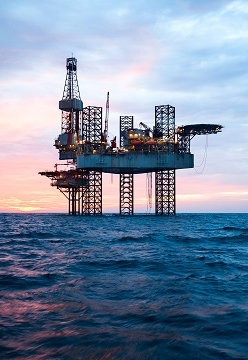
Eric Eyo Partner
AfCFTA and Energy & Infrastructure
It is no secret that Africa has had a somewhat tempestuous relationship with traditional fossil fuels. If we consider the Niger delta region of Nigeria for example, it had an abundance of crude oil reserves sufficient to make Nigeria one of the most wealthy and prosperous countries in the world. However, an unfortunate combination of poor governance and poor trade policy has seen it become a net importer of refined petroleum products over the years. This somewhat tragic scenario has effectively cancelled out any profit Nigeria made by way of its crude oil exports. The relationship has become even more sour, owing to the environmental damage caused by the extraction activities of multinational oil companies in the region.
One of the key rationales behind the AfCFTA is to open up Africa’s domestic market to Africa’s citizens. The problems with intra-Africa trade are well known and include import tariffs and other barriers that actually make international trade from Africa more cost effective [see AfCFTA and the maritime industry]. Once these issues are mitigated, Africa’s energy market should become more accessible to her own citizens. In an energy context, by enabling the smoother flow of energy supplies between countries, the AfCFTA should, at least on paper, make it possible for suppliers to meet the continent’s energy needs efficiently and affordably. This is absolutely key for prosperity and the generation of domestic investment capital.
Where renewable energy technology is relatively new, the key word is “investment”. Arguably the best way to open up a market is by way of a free trade agreement, which should enhance trade law; reduce tariffs and non-tariff barriers; and hence should create a far more more stable and transparent environment for trading and investing.
The renewable energy drive is well underway and better trade policy should ensure Africa benefits to the rightful extent. With the multinational oil companies divesting from the Niger delta region and re-branding in a show of commitment to greener energy production and use, so too have African oil companies. Seplat Petroleum Development Company recently rebranded and became “Seplat Energy”. Not only that, but it also increased its gas lines to capitalise on Nigeria’s relatively cleaner gas reserves. Hopefully, activities such as these should ultimately provide the necessary investment capital to build and improve the continent’s renewable energy infrastructure as it looks toward 2030 and beyond.
As set out above, AfCFTA should only enhance the ability of African-based traders to do business domestically. So in short the answer is “yes”, AfCFTA should, at least in theory, make the trade of traditional fossil fuels between African countries easier (albeit within an increasingly green global energy environment). If we look again to Nigeria as an example, the Senate passed the Petroleum Industry Bill (the “PIB”) on 01 July 2021. Although its effect will very much depend on how it is implemented, one of its rumoured effects is to potentially reverse the downward trend in oil production. That theory very much remains to be seen.
Aliko Dangote has publically extolled the virtues of African countries striving to become energy self-sufficient. This is the first step. The second step is to create an energy surplus and in that regard Nigeria is blessed with sufficient crude oil reserves to satisfy domestic demand for refined petroleum products, but also has surplus for trade. Up until now, the problem Nigeria has had is a lack of oil refineries. This problem led to the rather absurd position Nigeria found itself in where it exported its abundant raw material at a cheaper price than it imported various refined petroleum products. It is hoped that the Dangote oil refinery will change that rather unfortunate narrative. The refinery is still under construction in Lekki - Nigeria, having suffered construction delay on account of covid -19, but when complete it will have the capacity to process about 650,000 barrels of crude oil per day, making it the largest single train refinery in the world.
It may not come as a surprise to many to note that the Chinese have taking the lead in the development of some of Africa’s most ambitious infrastructure projects.
China has invested approximately USD 400 billion in Africa between 2005 and 2018 and the investments span road, rail and electricity.
Some of the projects include:
Walvis Bay Container Terminal - Namibia
This development should increase Windhoek’s total storage capacity from 350,000 to 750,000 containers per annum.
Caculo Cabaca Hydropower Project - Angola
Gezhouba Group (China) is constructing the project which should meet more than 50% of the country’s electricity needs by 2024.
Mambilla Hydropower Plant - Nigeria
The contract to build Nigeria’s Mambilla hydropower plant was awarded to Gezhouba Group (China) and is set for completion by 2030.
If you have any questions about the content in this article or would like to discuss further, please do not hesitate to reach out to our specialists at [email protected].
12-05-2022 / Energy & Infrastructure
Refund guarantees are often described as the cornerstones to shipbuilding projects and the buyer’s main security. Although they do not strictly form part of the shipbuilding contract, a shipbuilding project is unlikely to go ahead at all without one. It is therefore important to understand the different types of guarantee instruments, and the impact each has in practice on the guarantor’s obligations to pay and the buyer’s entitlement to recovery. A well-drafted guarantee provides certainty to the parties and strikes a balance between their respective entitlements and obligations.

04-04-2022 / Energy & Infrastructure
Estoppel is a useful tool in litigation, which is usually used to bind one party to a statement or a promise that it has previously expressed causing another to accept or adopt it for the purpose of their legal relations. The Court’s recent ruling in Geoquip Marine Operations AG v (1) Tower Resources Cameroon SA (2) Tower Resources PLC addresses estoppel by convention and recognises the requirement for the common assumption created between the parties to be clear and unequivocal. In this article, we focus on the specifics of the Court decision.
_itok-ZnEHOVcB.jpg)
29-03-2022 / Energy & Infrastructure
On 24 March 2022, the Court of Appeal overturned the conviction of a second man, Paul Bond, prosecuted by the Serious Fraud Office (SFO) in relation to alleged wrongdoing by Unaoil.
_itok-qusgLYgI.jpg)
08-03-2022 / Energy & Infrastructure
As we approach the second anniversary of Covid-19 being declared a pandemic by the World Health Organisation on 11 March 2020, a number of judgments are coming out of the English Courts which are providing useful guidance on how the English Courts are treating claims concerning Covid-19, especially in a force majeure context.

02-03-2022 / Energy & Infrastructure
R (Finch) v Surrey County Council CA (Civ Div) [2022] EWCA Civ 187 “The task of the court in a claim such as this is only to decide the issues of law. Those issues cannot extend into the realm of political judgment – which is the responsibility of the executive, not the courts …”

28-02-2022 / Energy & Infrastructure
With companies racing to make sense of and take steps towards a net-zero future, an array of climate goals are being published at ever increasing speed; it remains to be seen how achievable many of these goals are without concrete plans in place. Accusations of ‘climate-washing’ are rife and statements have been legally challenged. Current investigations and actions show the direction of travel as pressure groups and public organisations seek to hold private sector companies to account.
